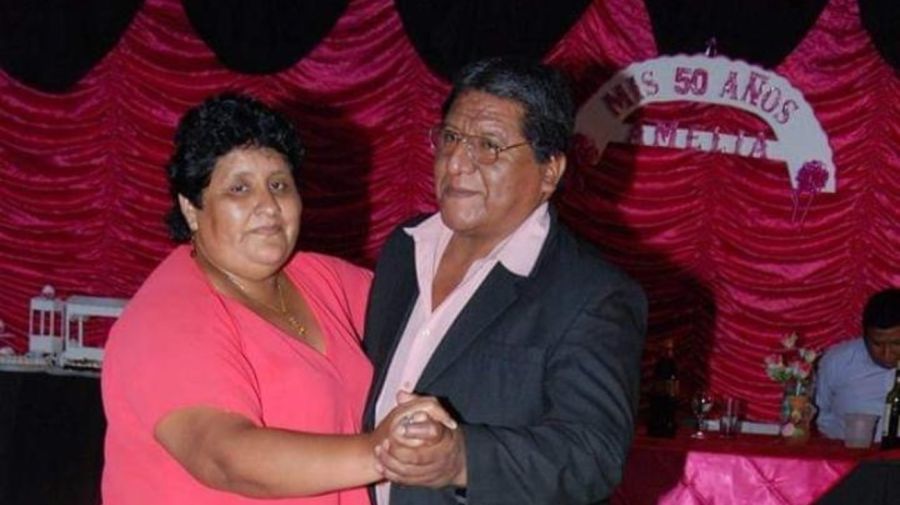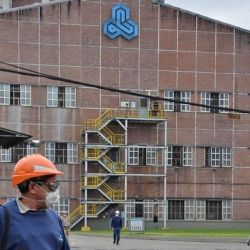Powerhouse of the sugar industry and founded in 1889, Ledesma is one of the oldest companies in Argentina.
The firm owned by the Blaquier family has also become the epicentre of a Covid-19 outbreak which has helped to bring the health system in its home province of Jujuy to the brink of collapse. Workers at the agribusiness giant say they’re preparing a legal claim.
On Wednesday night (September 9), 53-year-old José Nina became the 13th Ledesma employee to die after being infected with Covid-19 in Jujuy, a province that until only recently appeared to have the virus under control.
At the end of July, the region had suffered the relatively small number of 53 fatalities among some 2,000 positive cases. Six weeks later, deaths have climbed to 328 – a province of 719,000 (just under two percent of the national population) has the highest infection and death rate per head after Buenos Aires and CABA.
Moreover, at nearly three percent, the fatality rate (deaths per number of positive tests) is a point higher than the national average of two percent.
Microcosm
Ledesma’s sugar refinery, in Jujuy's second-biggest city of Libertador General San Martín, has become a microcosm of the coronavirus crisis.
During June and July, it had 70 confirmed cases, with the first fatality recorded on July 29: that of Basilio Artero, 58.
In August, 11 workers died, including two aged in their 30s, Matías Urzagasti (38) and René Arena (39). There were 378 positive tests.
With 6,200 employees at full capacity, Ledesma is the biggest employer in Jujuy after the state. With the latest fatality, the death rate is now at least one in 477, more than four times that of Jujuy Province (one in 2,192), and nine times that of the national rate of one in 4,047.
The company has confirmed 467 positive cases among its workers, 432 of whom have recuperated. It has carried out 979 tests so far, which it says is five times the national rate.
The impact of the crisis, unsurprisingly, has been devastating. The SOEAIL sugar workers union has issued legal action, denouncing the company for two articles of the national penal code, including "the crime of spreading a dangerous and contagious disease" and negligence in its attempts to stop the virus.
“Workers have called us and told us they don’t feel well, but that they are forced to work. People are more scared of Ledesma than they are of the virus," said SOEAIL Secretary General Rafael Vargas.
The union wants anyone over the age of 60, or with pre-existing health conditions to be signed off from work, rather than the age of 65 that Ledesma uses. Four workers aged 60 or over were among the fatalities in August: Juan Mercado (60), Gumercindo Martínez (62), Armando Ajalla (63) and Juan Barrionuevo (64).
The union also claims that staff are not given proper personal protection and alleges a doctor working for the company has obliged employees with symptoms to carry on working.
‘We are very cautious’
Ledesma spokesman Ignacio Duelo dismissed the accusations, saying: “We have all the protocols in place. We are very cautious, and we offer support to any worker with Covid, and their families. If any workers under the age of 65 have pathologies, or if they have any symptoms, we ask them not to come to work. Anyone in contact with anyone else who tests positive doesn’t have to come to work.
“Ledesma has slowed production as much as possible, we are working with smaller numbers, but the sugar harvest runs from May to November, you have to do it in a specified period,” he added.
“According to the national decree, we are classified as an essential industry, so we have to keep working. It’s not just sugar production, we also produce fruit juice, paper and medicinal alcohol. It’s the national government which specifies the age of 65, not us. We have a very strong impact on the local economy, we can’t shut down production,” said the representative.
“We are devastated by the latest death, as we hadn't had one for two weeks, and the rate of contagion has slowed down. We have only had 19 positive tests so far in September, so we hope that this will be the last death among our workers."

‘He didn’t have any health problems. Never in his life.’
Isabel Mamani de Santos, 75, lives in the remote mountain village of Valle Grande (population just 538), tucked away in the Yungas cloud forest of north Argentina, far from the heavily populated epicentres of Covid-19 infection.
But she has been left devastated by the disease, losing her son Alejandro, who spent his whole working life at Ledesma.
Alejandro Santos Cruz, 55, was the second worker at the firm to die, on August 2. He worked for 35 years as a maintenance mechanic.
His widow Amelia, 52, told the Times how she nursed her husband at home, unable to find a bed in hospital.
“He didn’t feel well on the Monday, he had a fever and headache, and felt dizzy, but he carried on working during the week. On his day off, on the Friday (July 24), he went to bed, and never got up."
Alejandro was tested for coronavirus the following Monday, and the doctor at Ledesma signed him off, prescribing injections for his lungs, because he was having difficulty breathing.
"The local hospital was completely collapsed, and there was no bed for him in the capital. The last three days before he died, I was repeatedly phoning for a bed, and there was never one available for him. I asked for a tank of oxygen and a drip, but nobody brought anything."
The cause of Alejandro’s death was registered as a heart attack, but the results of his Covid test came through a few hours later: it was positive.
“He didn’t have any health problems, never in his life. He was a person who loved the countryside, all he wanted was to retire and return to Valle Grande. The town has been completely cut off to protect the inhabitants from Covid, so his mother couldn’t come to the funeral, she couldn’t see her son for one last time. She was devastated. The family is all very sad, we never imagined anything like this."
The director of the Oscar Orías Hospital in Libertador, Dr Manuela Cabello, said: “We know it’s very painful for the families who lose loved ones. We had a very tough time coping with the pandemic at the start, but the curve is now flattening. Yesterday we had only four cases.
“In the third week of July we had a huge increase, and a second peak in the first week of August. In the next few days, we are expanding from six intensive care beds to 10.”
The hospital, which caters for a population of roughly 50,000 people, has 120 beds, 53 of them assigned to Covid-19 patients.
There have been 73 deaths of patients within the city of Libertador General San Martín, where more than half live, and a further 30 from surrounding towns and villages.
Coronavirus in Jujuy
(as of midday Friday, September 11)
– 33,134 tests
– 11,397 positive cases
– 5,242 active cases
– 5,827 recuperated
– 328 deaths
SOURCE: Provincial government




























Comments